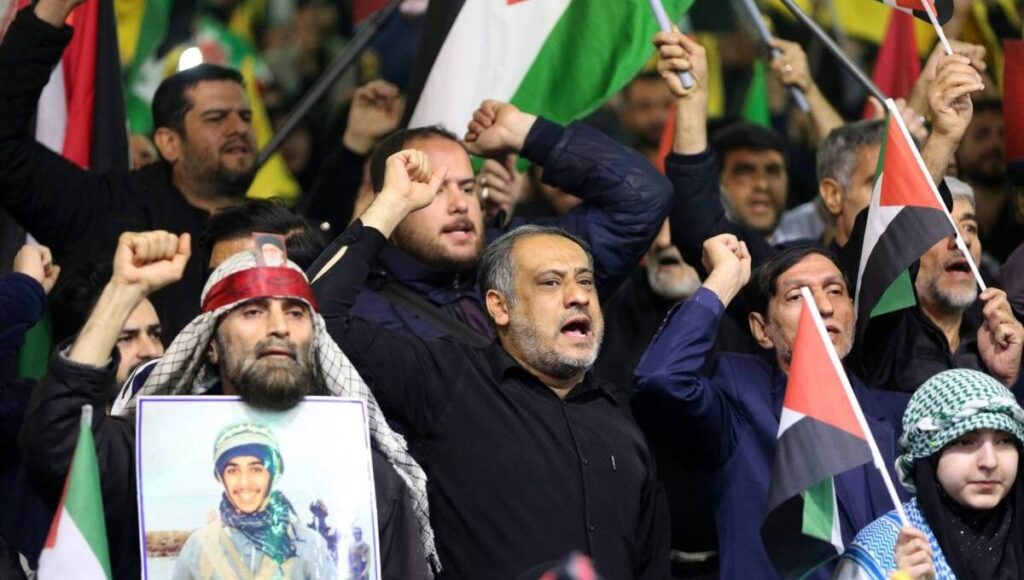Historical Context and Recent Developments An Iran Attack Israel Israeli, Brigadier General Zvika Haimovich, who previously served as Commander of the Israel Air Defense Forces from 2015 to 2018, has highlighted the escalating threat of war with Iran. This threat is notably different from when Tehran made its first direct attack on Israel in April. During that attack, Iran’s proxies, Hezbollah in Southern Lebanon and the Houthis in Yemen, were not involved. Iran launched explosive drones and fired missiles at Israel, ending years of a shadow war between the two nations.
The Trigger: Events Leading to the Current Tensions

The recent escalation began less than two weeks after a suspected Israeli strike in Syria that killed two commanders from the Islamic Revolutionary Guards Corps (IRGC) at an Iranian consular building. The situation worsened following the killing of Hamas chief Ismail Haniyeh in Iran’s capital. Haniyeh was in Tehran for the inauguration of Iran’s newly elected president, Masoud Pezeshkian.
Iran Attack Israel Israeli Supreme Leader Ayatollah Ali Khamenei vowed retaliation against Iran Attack Israel Israeli, with the IRGC promising “blood vengeance” for Haniyeh’s killing. Brigadier General Haimovich believes Hezbollah will play a crucial role in Iran’s retaliation this time around. He asserts that Iran is likely to retaliate for the killing, which Tehran blames on Iran Attack Israel Israeli, although Israel has neither confirmed nor denied involvement.
Potential Scenarios and Strategic Questions
Haimovich identified several key questions that will determine the course of the conflict. The first is whether Iran will strike central Israel, such as Tel Aviv, or limit its attacks to the Northern region near Haifa. The second question is whether Tehran will use accurate and precise missiles or simpler, less sophisticated weapons. The third consideration is whether Iran will employ massive salvos, releasing large numbers of rockets simultaneously.
“Everybody is under pressure, mainly the civilian population and military forces on high alert around the border,” Haimovich said. He emphasized the uncertainty surrounding when and how Iran might act, with predictions ranging from an imminent attack within 48 hours to a delayed response over several days.
International Response and Diplomatic Efforts

The situation has drawn significant international attention. President Joe Biden and Vice President Kamala Harris recently met with the national security team in the White House Situation Room. While the United States has not observed specific movements in Iran indicating immediate attacks on Israel, the Pentagon remains vigilant. The US has vowed to respond after several American personnel were injured in a rocket attack on the Ain al-Assad airbase in Iraq, allegedly carried out by Iran-backed militants.
G7 members have reached out to Iran, urging restraint to prevent a broader regional conflict. Former CIA director and US CENTCOM Commander David Petraeus, in an exclusive interview with Iran International, suggested that both Iran and Israel are keen to avoid a full-scale war due to the potentially devastating consequences for both sides. Petraeus emphasized the need for Iran to respond to maintain its honor but predicted that neither side desires a prolonged conflict.
The Road Ahead: Uncertain Future and Strategic Calculations
Haimovich noted that Israel’s retaliatory attack in April, which targeted Iran’s sophisticated radar system in Isfahan, sent a strong message to Tehran. However, he questioned whether it was sufficient to deter future aggression. The attack highlighted the disparity between Iran’s defense capabilities and Israel’s military strength.
As the region teeters on the brink of war, the actions of both Iran and Israel in the coming days will be critical in shaping the future of this volatile conflict. The potential for escalation remains high, with the international community watching closely and urging de-escalation to avoid a catastrophic regional war.
Conclusion Iran Attack Israel Israeli
The Israel-Iran conflict, marked by a complex interplay of military strategies, proxy involvement, and international diplomacy, remains a highly volatile situation. As both nations navigate this precarious landscape, the world awaits their next moves, hoping for a resolution that avoids further bloodshed and chaos. The threat of an all-out war looms large, with the potential to reshape the geopolitical dynamics of the Middle East significantly.




